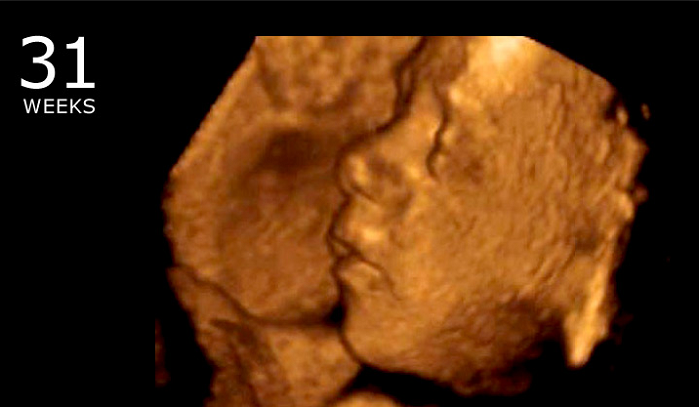The chance of a baby surviving outside the womb after 31 weeks of pregnancy is extremely good, thanks to modern medical technology.
However, the Supreme Court of India allowed a woman to abort her unborn baby at that late stage of pregnancy this week after her baby was diagnosed with potentially fatal kidney problems, The Indian Express reports.
Abortions are illegal after 20 weeks of pregnancy in India. However, women or their families increasingly have been petitioning the high court for permission to abort their unborn babies after the limit, especially in cases involving fetal abnormalities or sexual assault.
At 20 weeks, an unborn baby already is fully formed and close to the point of viability (about 23 weeks). Late-term abortions also are risky and can be deadly for the mother.
This week, the court ruled that the mother from Thane, India may abort her 31-week unborn baby because she could suffer mental anguish, according to PTI. The high court also said the unborn baby is not compatible with life.
Here’s more from the Express:
A bench headed by Justice A. K. Sikri relied on a report of the medical board of Mumbai-based J J Hospital, where the woman was examined, and noted that continuation of pregnancy would cause more mental anguish to her.
According to doctor’s opinion, the foetus has severe congenital problem and both its kidneys were not functioning and the condition was not compatible to life after birth.
“We feel that at this stage termination of pregnancy is not going to be more hazardous than spontaneous delivery at term. Considering poor prognosis of the baby, continuing pregnancy will cause more mental anguish to the mother,” the board said in its report submitted in the top court.
In the past year, the Indian courts have granted numerous exceptions to the late-term abortion ban. Because of the frequency of these requests, the Supreme Court of India asked the government in July to consider setting up a permanent medical board to examine late-term abortion petitions. Currently, the courts set up temporary medical boards to examine individual cases.
SUPPORT PRO-LIFE NEWS! Please help LifeNews.com with a donation during our Fall Support Campaign
In August, the high court gave a Mumbai-area woman permission to abort her unborn baby at 26 weeks after doctors said the baby had a potentially fatal disorder. Doctors at JJ Hospital who examined the woman and her unborn baby said the baby did not have a skull and probably would not survive, according to the Indian Express. The doctors also said the woman was experiencing “immense mental agony.”
“The condition of the foetus is not compatible with life. The medical evidence clearly suggests that there is no point in allowing the pregnancy to run its full course since the foetus would not be able to survive outside the uterus without a skull,” the court ruled.
The problem with the court’s logic is that society does not allow born children who are diagnosed with a fatal disorder to be killed. Instead, these children often are provided with the best medical care and pain relief that is available until their lives end naturally. Unborn babies should be treated with the same care and respect. But they are not, and the only reason is because they are still in the womb.








